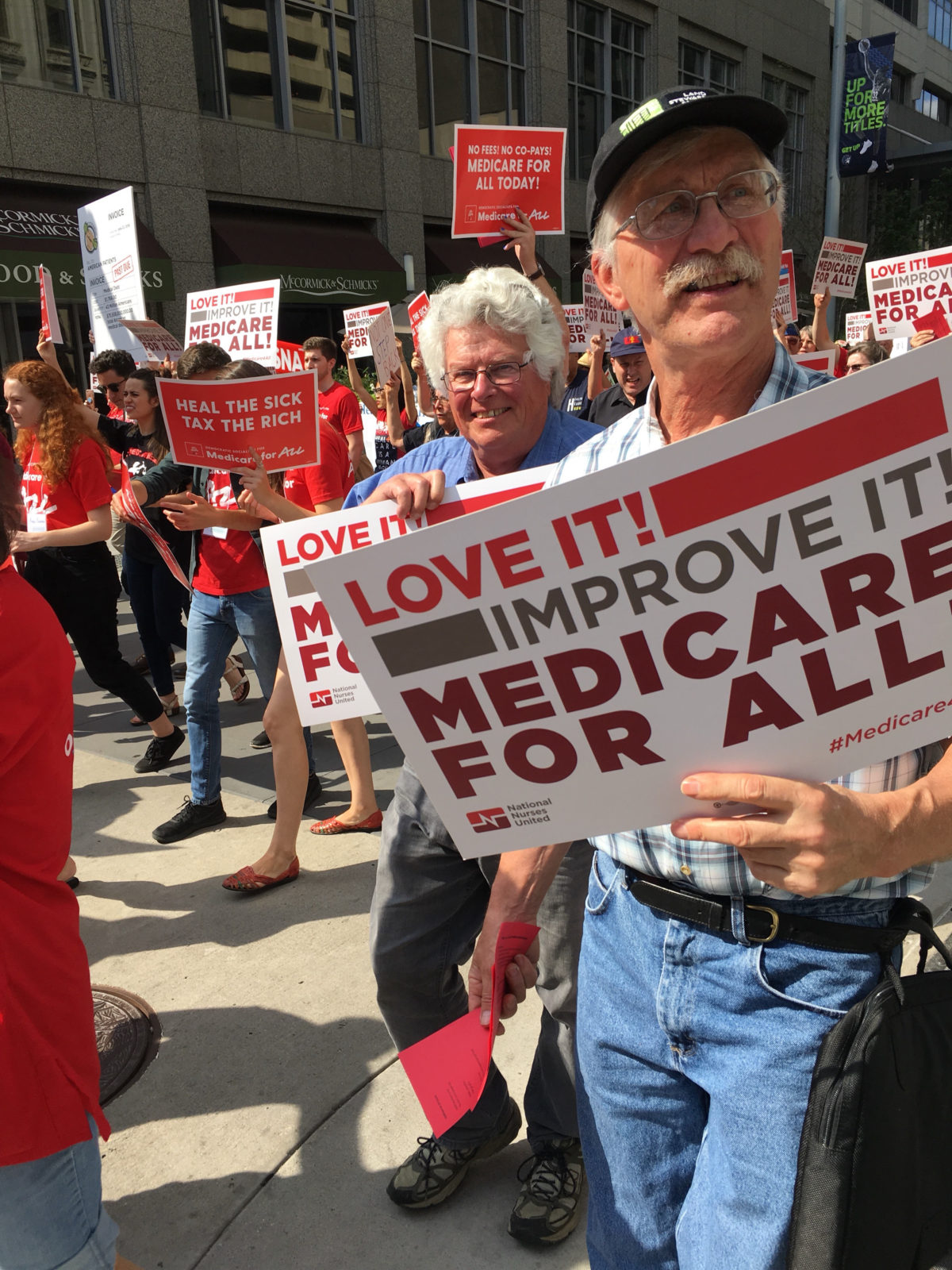The Land Stewardship Project believes that in order for our communities to thrive, everyone, regardless of background or zip code, must have access to the healthcare they need. Yet lack of healthcare access and high costs continue to be major financial stresses for all Minnesotans — particularly for rural residents. More people in rural areas lack employer-based insurance or are uninsured than in urban areas. And even with insurance, about half of people are on high deductible insurance plans with such extreme up-front costs to accessing care that people are forgoing or delaying the care they need.
In Minnesota, most legislative efforts in recent years have focused on keeping premium costs down to make purchasing health insurance more affordable. But this has been offset by significant shifting of the cost of care to people in the form of co-pays and co-insurance, in addition to up-front deductibles. Few people, especially after the economic drain of the pandemic, have the resources to pay thousands of dollars out-of-pocket if faced with an emergency hospitalization. As a result, many rural hospitals are operating at a loss, with threat of permanent closure. In addition, other essential components of healthcare in rural Minnesota face shortfalls, such as lack of in-home care workers, nursing home beds, obstetric and mental health services, and volunteer staffing for ambulances.
Our fractured payment system for healthcare fails to guarantee equitable access for all Minnesotans. The billing complexity frustrates medical providers and wastes precious healthcare dollars. Medical providers spend hours obtaining authorization for necessary care for patients, while up to a third of the costs of hospitalization are spent on billing and coding. We must demand better for all our communities if they are to be places where people want to invest their lives.
When access to care is limited by availability, either due to distance or restrictive provider networks, people can’t “shop for care.” It’s time to discard the worn-out call for marketplace solutions as a means of controlling costs. When companies can profit from healthcare, controlling costs means reducing care, such as by closing rural clinics or standing between doctors and the care they want to prescribe for patients. We need to use our collective power, as Minnesota residents, to demand investment in healthcare. We need a publicly funded and publicly administered system of care that takes profit out of the equation and guarantees access to care wherever people live. This is a critical part of the reinvestment needed to rebuild the strength of our rural communities.
We are far from creating the healthcare system we need, but during the 2021 session of the Minnesota Legislature, important efforts were made to lay the groundwork for key changes. The House passed these steps during the regular session:
• Require our state government to report on alternate methods of delivering care and reimbursing medical providers in Minnesota’s public medical insurance programs. This could provide information on possible cost efficiencies of public administration of public health insurance programs.
• Require our state government to develop and report a proposal for a public health insurance option program by December 15, 2021.
• Establish a Prescription Drug Affordability Board to control the runaway costs of pharmaceuticals.
• Establish public hearings to review impact on communities before healthcare entities close facilities or reduce services.
In contrast, the Minnesota Senate continues to support “reinsurance,” a program that uses taxpayer dollars to insure insurance companies against losses, while people still go into debt paying for healthcare. LSP argued against using healthcare dollars in this way, as this program does nothing to control significant out-of-pocket costs for people needing to buy insurance on their own in the marketplace. But most importantly, we opposed this because it continues an insurance system that is not making care more affordable and accessible, especially for rural communities, farmers, and our Main Street businesses.
The fundamental change we need in the healthcare system in Minnesota will not happen this year, despite our shared concern. We need to come together in our communities and ask legislators to deliver meaningful solutions instead of replacing Band-Aids.
Join LSP’s Healthcare Hotlist to keep updated on ways you can participate in creating a truly healthy healthcare system in Minnesota.
Aleta Borrud, a retired physician from Rochester, Minn., recently worked as an LSP healthcare organizer.
